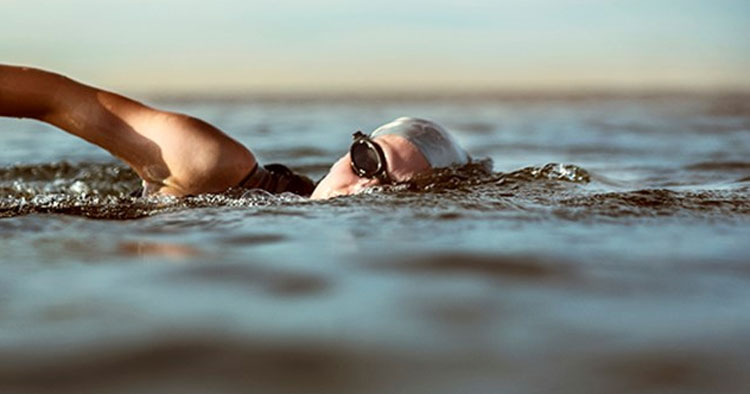Muscle Pain and Tendinopathy, Sports Injuries and Management
Causes Of Shoulder Pain Swimming
Shoulder Pain Swimming Is A Multifactorial Beast
Shoulder pain is the most prevalent of injuries amongst swimmers. Shoulder pain swimming commonly referred to under the blanket term swimmer’s shoulder is generally thought of to be a multifactorial condition rather than the result of any single cause. It is considered both anatomical and training factors play a role in the development of shoulder pain swimming. The following anatomical factors are considered to be potential contributors to developing swimmers shoulder:
- Shoulder joint laxity which can occur following trauma such as having previously suffered a subluxation or dislocation, or congenitally as a result of hypermobility.
- Acromion formation variations such as having what is referred to as a “hooked acromium” or medically as a type II or type III acromium. Anatomical variations such as these statistically increase the likelihood of someone developing shoulder impingement.
- Soft tissue imbalances of the shoulder muscles and joint capsule can impact shoulder blade and shoulder joint motion and mobility. Commonly a tight posterior capsule is often implicated as a potential contributor to developing shoulder pain swimming.
- Shoulder and scapula muscle weaknesses or strength imbalances can increase the risk of developing pain in the shoulder when swimming. Due to the nature of swimming anyone who swims enough will have a tendency to develop muscle imbalances. A classic imbalance with swimming is where the shoulder adductors and internal rotators will over develop through the action of pulling the body through the water, leaving other muscle groups relatively weak in comparison. Because these other groups don’t get used as much during the swimming action there results an imbalance of strength potentially impacting shoulder biomechanics.
- Upper back (known as the thoracic spine) posture variations such as having a “rounded” thoracic spine (kyphosis) and resulting thoracic mobility limitations can place more demand on the shoulder to come up with the necessary mobility required to swim ultimately placing additional strain on certain tissues. A “hunched” or stiff mid back can alter shoulder blade positioning and movement and this in turn can place more strain or demand on the shoulder joint potentially contributing to the onset of shoulder pain swimming.
Classic Muscle Imbalances
Generally a classic pattern with shoulder pain swimming is to have a muscle imbalance between the heavily used adductors, internal rotators of the shoulder and the rotator cuff stabilising muscles of the shoulder. An imbalance such as this can lead to non desirable translation of the ball in the socket and associated joint capsule tightening. These changes contribute to shoulder impingement of soft tissues and over loading to the rotator cuff and other shoulder stabilisers like the biceps tendon, potentially leading to the onset of pain.
Training Errors And Shoulder Pain Swimming
Training errors considered to be potential contributors to the development of swimmers shoulder may include:
- Poor technique in one, or multiple of the swimming strokes
- Over training leading to fatigue (regarding the volume of training, or insufficient rest days)
- Inappropriate use of resistance such as large hand paddles, resistance training as such when the individual isn’t yet “strong” enough / conditioned to swim using paddles, or is already fatigued adding to further overload to tissues. The use of paddles may also add additional strain to the shoulder when stroke technique errors exist and paddles may also accelerate the development muscle strength imbalances.
At Sydney Physio Clinic our physio team are happy to assess and help guide people through their treatment for all variety of causes of shoulder pain swimming.
Disclaimer: Sydney Physio Clinic does not endorse any treatments, procedures, products mentioned. This information is provided as an educational service and is not intended to serve as medical advice. Anyone seeking specific advice or assistance regarding Causes Of Shoulder Pain Swimming should consult his or her general practitioner, sports medicine specialist, or physiotherapist.


